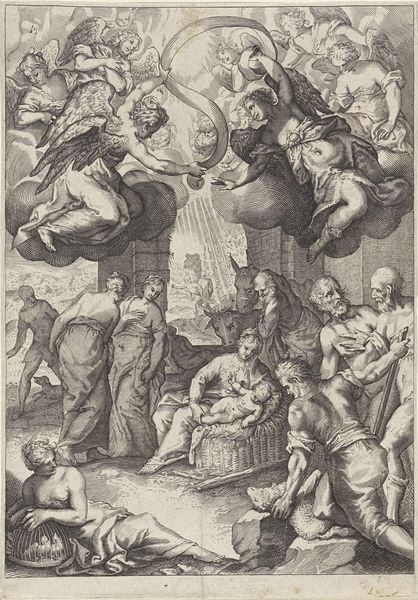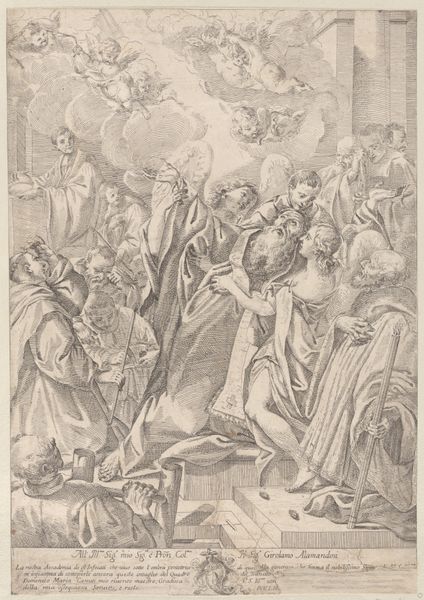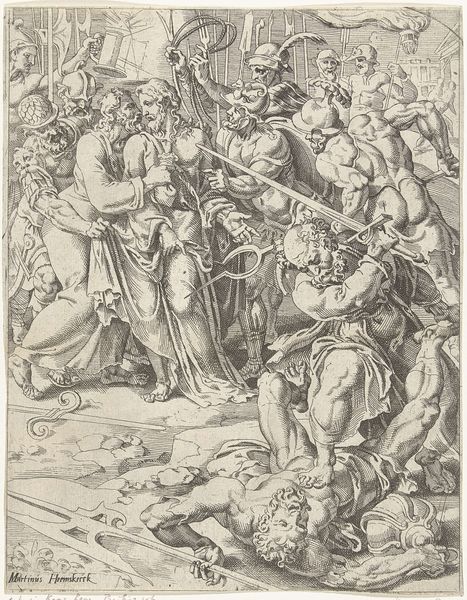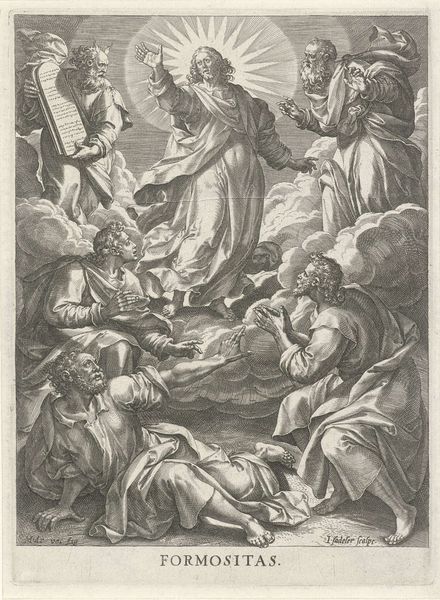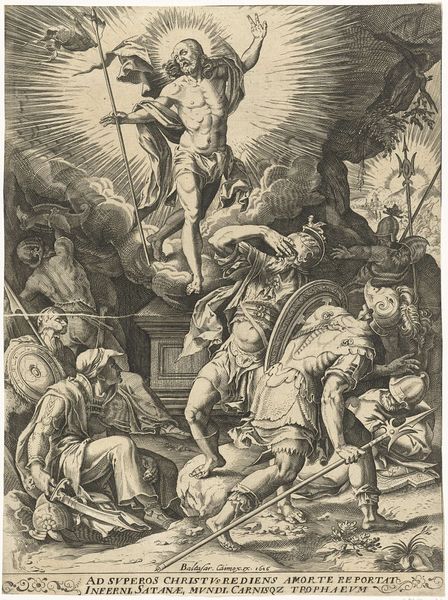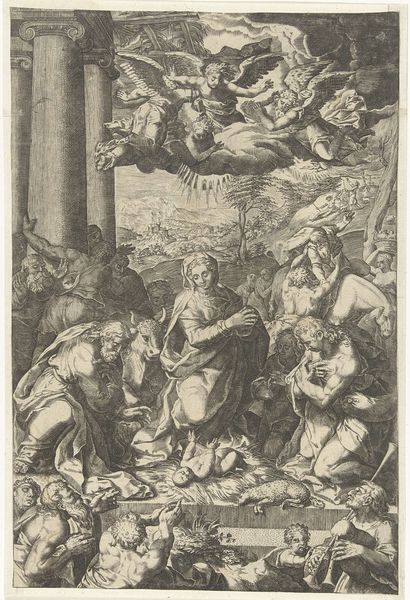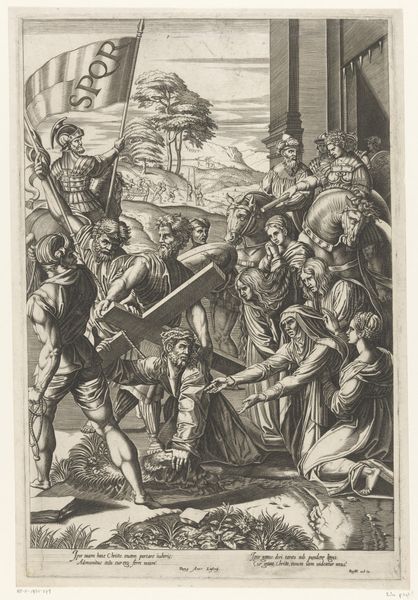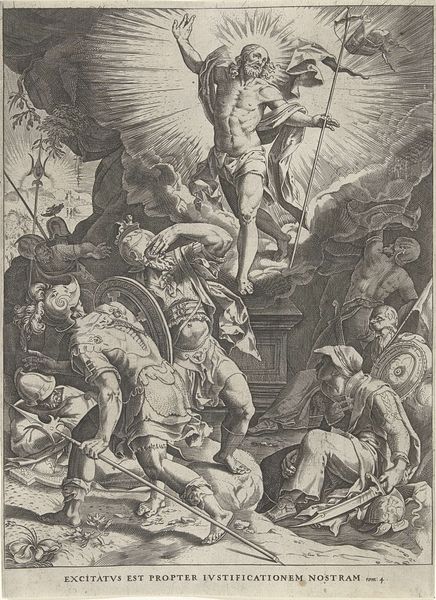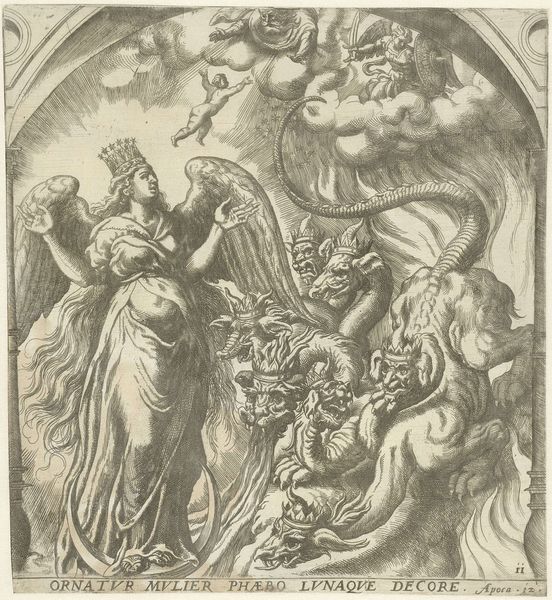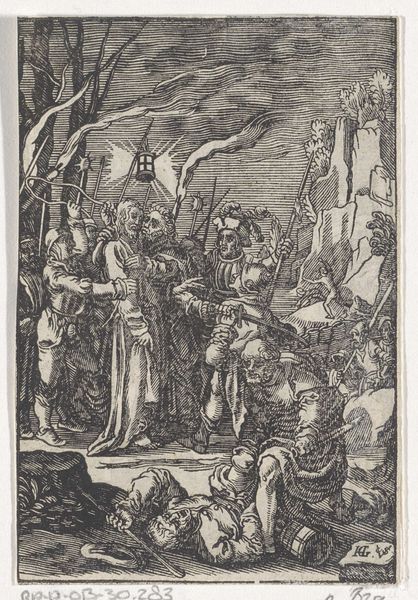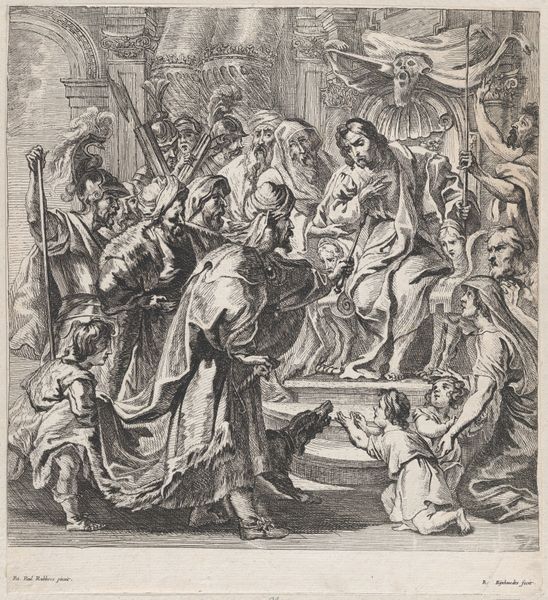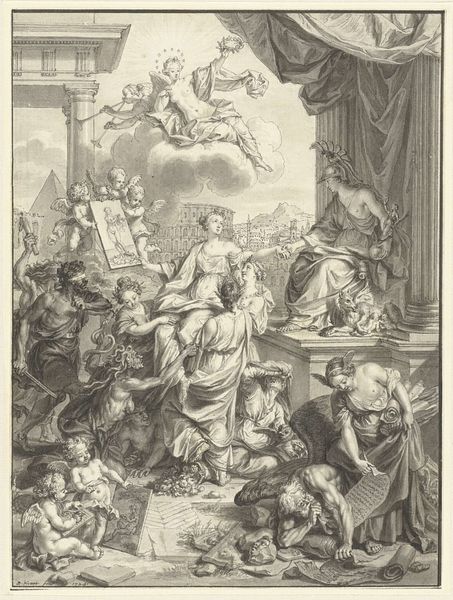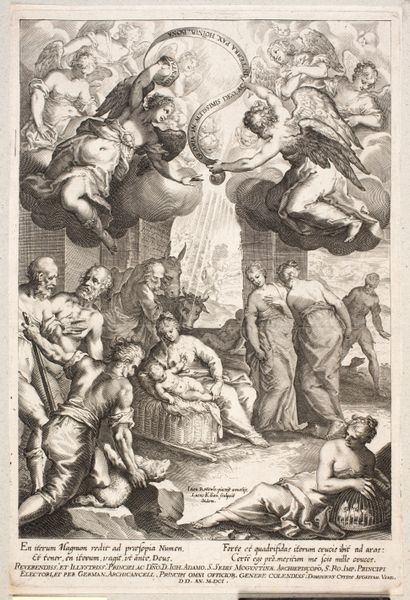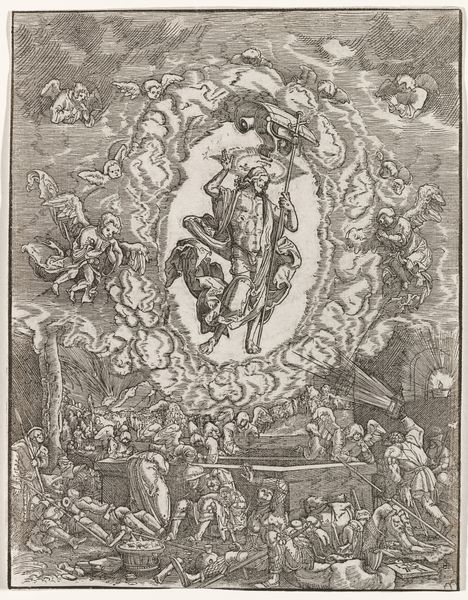
drawing, print, engraving
#
drawing
#
pen drawing
# print
#
figuration
#
history-painting
#
northern-renaissance
#
engraving
Dimensions: height 140 mm, width 105 mm
Copyright: Rijks Museum: Open Domain
Zacharias Dolendo made this print of "The Arrest of Christ" in the Netherlands around the year 1600. It shows the moment when Jesus is betrayed in the Garden of Gethsemane, an event loaded with religious and political meaning at that time. The image employs visual codes common in that era. The torches, the Roman soldiers, and Christ’s calm demeanor all refer to a narrative deeply embedded in the culture of the Netherlands, then undergoing religious reformation and revolt against Spanish rule. Was Dolendo commenting on the persecution of religious figures in his own time? Is it possible that he wanted to draw parallels between the suffering of Christ and the struggles of those persecuted for their religious beliefs? Understanding this print requires us to delve into the religious conflicts and social upheavals of the 16th and 17th century. Examining historical texts and theological debates is essential to uncovering its layered meanings. It allows us to see how art is not just a reflection of its time, but an active participant in shaping cultural and political discourse.
Comments
No comments
Be the first to comment and join the conversation on the ultimate creative platform.
